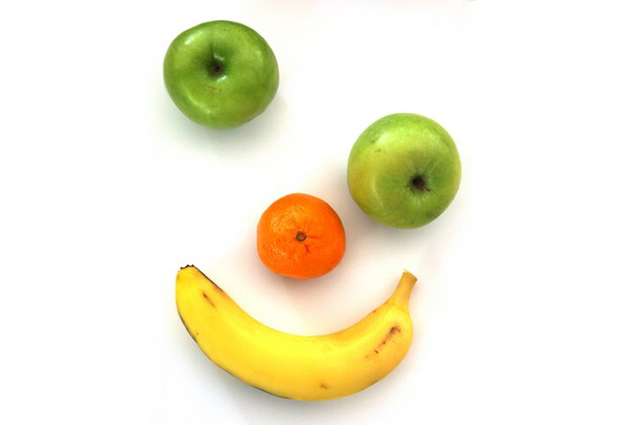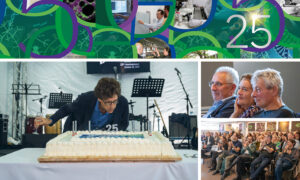
For food – back to EMBL
Literally every alumnus recently surveyed lists the canteen among their best memories of EMBL, and as a good reason to go back and meet friends. The 15th Science and Society conference, held in November, provided yet another incentive, as the two-day event was all about food.

By Freddy Frischknecht
Sure enough, I was there to enjoy a feast for all the senses, from the catering team serving specially prepared finger-fare to the speakers dishing up curious facts about and around food. I was intrigued to learn that hunter-gatherers lived shorter but more healthy lives than farmers, who lived in misery – or so the archeological record suggests, with an almost 10 cm drop in stature and unhealthy bones and teeth. Apparently we only caught up in the 20th century. Yet in the 21st century, 70 per cent of the food consumed in the UK is processed. The richer the country, the less nutritional the food – clearly, somewhere in the history of development, something went terribly wrong!
Changing perceptions of our bodies is also important. While in the 19th century we imagined our bodies as factories that simply processed food for fuel, we now view the body as a web of intricately woven biochemical pathways. These show on the one hand how important it is to eat diverse food, and on the other just how resilient our bodies can be. One speaker said of the systems-level interactions that are being investigated by modern nutritionist researchers: “You can’t change your genome but how it is used.” If you take in too much of the same food, you neglect and impoverish large parts of your metabolic capacity. It is this complexity that calls for dietary variety of the hunter-gatherer kind: if they craved something sweet, berries contained minerals and polyphenols with health benefits not found in candy or chocolate bars. Hence the call of one speaker to challenge and surprise our bodies from time to time, not just by overdoing the odd sportive activity – like cycling up to EMBL – but also by exploring the odd taste sensation. So, next time you see a grilled grasshopper, go for it!
So, next time you see a grilled grasshopper, go for it!
It is also amazing how our visual mind plays a role in taste: the gut itself is a second ‘brain’ of sorts, with its estimated 500 million neurons and 40 neurotransmitters (albeit still paltry in comparison to the 85 billion neurons and 100 neurotransmitters of the brain). Lots of interactions occur between the two organs, influenced by our microbiota, which are as diverse as the dishes served across the globe. Yet, the eyes tell you what you like more than all our taste buds combined – experiments show that taste is influenced by shape, arrangement and even the color of the plate on which the food is served. To quote Eddie Izzard, “You need a tray to put the food on,” but just how you present it can make a difference. So, why not put a smile on your plate next time?


